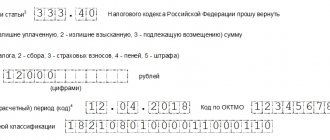A claim is an application to the court. It is served to oblige someone to fulfill certain requirements. To win a case in court, you must, at a minimum, file your claim correctly. We will tell you how to file a claim in court and the nuances that are worth considering.
If the amount in dispute is insignificant or the matter is simple and clearly in your favor, then you can draw up and file a claim yourself. But in difficult situations it is better to trust a professional, especially if it is a criminal offense.
What to do before going to court
Before filing a claim, clearly formulate what you want to achieve. You can find the law and look at the practice of the courts to make sure that the requirement is feasible. We are convinced - let's move on.
Try to reach an agreement before the trial
There is no guarantee that when filing a claim in court, the plaintiff will win. In addition, pre-trial dispute resolution is a way to find a beneficial solution for both parties without spoiling the relationship. In some cases, this stage is completely required.
Mandatory pre-trial procedure is provided for the following disputes:
- on the collection of sanctions and mandatory payments;
- about payments under compulsory motor liability insurance;
- upon termination of the lease agreement;
- upon termination of the tenancy agreement;
- on termination of a bank account agreement, etc.
If in your case an attempt to resolve the conflict before trial is mandatory, then before filing a lawsuit, you need to collect evidence that you tried to reach an agreement. Otherwise, the court will simply not accept the claim. Therefore, contact the defendant with a proposal to draw up a pre-trial agreement.
Determine the statute of limitations
You can sue if the statute of limitations has not passed. If the opposite party notices that the period has expired and tells the court about this, then your claim will be denied.
The general limitation period (i.e., the period during which an application can be filed) is 3 years, according to Article 196 of the Civil Code of the Russian Federation. In some cases, shortened deadlines apply (3 months, for example), so it is better to clarify information on a specific situation in advance. The calculation of the period begins from the moment when the violation of the right became known.
Find the defendant
You need to file a lawsuit against someone - decide through whose fault your rights were violated. The defendant may be an individual, legal entity or government agency. You can sue multiple defendants.
If you do not know the defendant's information, you need to find out. By name, address or title, check the individual entrepreneur or legal entity in the register on the Federal Tax Service website. The owner of the apartment can be identified by ordering an extract from the Unified State Register of Real Estate.
Rate the claim
Before filing a lawsuit, you need to determine how much you want to recover from the defendant. If your property is damaged, invite a specialist to assess it.
Let's evaluate rationally. If the court considers that the price of the claim does not correspond to the amount of your damage, then it will be changed when accepting the statement of claim.
According to Art. 391 of the Labor Code of the Russian Federation, an employee has the right to file a claim in the following situations:
- The salary turned out to be less than what was stipulated in the employment contract.
- There is a desire to be reinstated at work, but the employer prevents this in various ways.
- There are suspicions of discrimination against an employee - a violation of his rights due to nationality, religion, gender, social position, marital status or other issues not related to business qualities.
- The employer does not want to pay for forced absences.
- The employer refuses to pay the difference in remuneration when the employee performs duties paid below his salary.
- The dismissed employee does not agree with the reason for dismissal or with the date specified in the order.
- The employer committed violations during the processing or storage of personal data, which resulted in their disclosure.
In turn, the employer can also file a lawsuit if the employee caused damage to the company and refuses to voluntarily compensate for it. There may be exceptions to this provision specified in the current legislation of Russia. Citizens who provide services to other individuals, individual entrepreneurs or religious organizations under an employment contract also have the right to go to court to protect their rights, if there are grounds for this. A representative of a trade union defending the interests of an employee can also write a statement of claim.
The participation of a labor prosecutor in court is also possible. According to Article 391 of the Labor Code of the Russian Federation, the prosecutor can file a lawsuit in court if it is discovered that the decision made by the labor commission on a conflict between an employee and an employer violates the current Labor Code or other laws governing labor relations. A party to the conflict who believes that the decision of the labor commission is illegal has the right to write a statement to the prosecutor's office. After the inspection, if a violation of the law is discovered, the prosecutor may file an application with the court.
The labor inspectorate cannot represent the interests of the employee in court. This body verifies the presence or absence of violations of current legislation, but does not resolve labor disputes that arise between the employee and the employer. The inspector can only explain to the employee which of his rights were violated by the employer and give recommendations on how to go to court.
All individual labor disputes are classified as complex, and therefore it is advisable for a citizen planning to file a claim to seek competent legal assistance. An experienced lawyer will study the circumstances of the conflict, existing similar judicial practice and select the optimal algorithm of action. He will also tell you what documents you need to collect, help you write a statement of claim, and may be present at the trial. Processes conducted by an experienced lawyer often end in the satisfaction of the claims.
Contents of the statement of claim
The content is regulated by Article 131 of the Civil Procedure Code. The claim states:
- name of the court;
- details of the plaintiff (full name, address);
- defendant's name and address;
- the essence of the violation;
- the circumstances on which the claims are based;
- evidence of the existence of these circumstances;
- the cost of the claim and calculation of the amount (if an assessment is required);
- information on the pre-trial procedure for resolving the dispute (if required);
- list of attached documents.
At the end of the claim, you must put the signature of the plaintiff or his representative. A receipt for payment of the state duty must be attached to the document.
How to file a claim
You must try to draw up a statement of claim, a complaint, taking into account the rules specified in Art.
131 Code of Civil Procedure and Art. 125 APK. Seven main details of the claim:
- name of the judicial authority;
- last names, first names, patronymics, registration addresses, contact numbers, e-mail of the defendant, plaintiff;
- information about how your rights were violated, available evidence;
- essence of the requirements:
- calculation of the amount to be collected;
- list of applications;
- signature, date.
In the arbitration process, it is necessary to confirm compliance with pre-trial procedure in cases where this is mandatory.
State fee for filing a claim in court
State duty is not charged on all claims. Plaintiffs who intend to file a claim for alimony, compensation for damage as a result of a crime, recovery of wages, etc. are exempt from payment. (for details, see Article 333.36 of the Tax Code).
If you file a claim of a non-property nature, the fee is fixed - 300 rubles, for divorce - 600 rubles, for alimony - 150 rubles, etc.
In a situation where a property dispute is subject to assessment, the fee is calculated based on the value of the claim. If you file a claim for an amount up to 20 thousand rubles, the duty will be 4%, but not less than 400 rubles. For a claim from 20,001 to 100 thousand rubles. the duty will be 800 rubles. + 3% of the amount over 20,000 rubles. All dimensions are specified in Section 333.19 of the Internal Revenue Code. Details for paying the fee can be found on the website of the selected court.
The court decides whether to accept the claim within 5 days from the date of its receipt. For administrative disputes, the period is even shorter - 3 days. You can check your acceptance by calling the court office or on the court website.
What documents are attached to the claim?
It is necessary to make copies of statements and complaints in an amount equal to the number of persons involved in the case. Attach a receipt for payment of the fee, a power of attorney for the representative providing legal services. You also need all the documents substantiating your requirements. Copies of evidence must also be made for the persons involved in the case.
In the arbitration process, you must attach copies of registration certificates of an individual entrepreneur or legal entity.
Where to file a claim
The claim is filed at the place of residence of the defendant. But there are exceptions to this rule (Article 29 of the Code of Civil Procedure of the Russian Federation). In some cases, the plaintiff may appeal to the judicial authority at his place of residence. This point must be taken into account when writing an application.
When filing a claim, the size of the claim matters:
- Less than 50 thousand rubles. You need to contact a magistrate.
- Above this amount. Submit an application to the district judicial authority.
The application is addressed to the court at the defendant’s place of residence, but there are exceptions to the rule. For example, a claim for alimony or paternity can be filed at your place of residence. To determine where to file a claim, legal assistance is needed.
Two ways to file a claim or complaint:
- in person or through a representative to the court office;
- postal service.
You can send a claim electronically when the court has such an opportunity.
What problems arise?
You can do it yourself from the Internet, fill it out and file a lawsuit. But a form is just a standard form, and a statement of claim is a tool for solving a specific problem. Therefore, it is necessary to take into account the rules for drawing up a statement of claim to the court and fill the document with suitable content.
Six mistakes when going to court on your own with examples:
- The wrong responder was selected. For example, in the decision to appeal the decision of the draft commission, a commission from another district is indicated.
- Requirements are specified incorrectly. If you incorrectly calculated the debt when filing the claim, you will not be able to return the amount you expected.
- The wrong judicial body was chosen. We turned to the magistrate, although the amount of claims exceeds 50 thousand rubles.
- Application deadlines missed. There is a statute of limitations that you need to remember when preparing statements of claim to the court.
- No evidence collected. If the management company incorrectly calculated the amount of payments for utility services, this must be confirmed with documents. The court will not believe the words.
- There is no receipt for payment of the fee. The judge will leave the claim pending until you bring the receipt.
The price of error is very high if you do not want to:
- spend time removing obstacles to accepting a claim and preparing appeals;
- feel nervous in the court office and at the hearing;
- incur legal costs: pay state fees several times, reimburse the costs of legal assistance to the other party;
- lose your chance of winning the case.
Immediately entrust the writing of the statement of claim to the court to professional lawyers in Moscow.
How can a lawyer help?
The specialist’s work plan looks like this:
- Provides free consultation when filing a claim.
- Analyzes the law and case law that applies to your situation.
- Calculates the amount of claims and state fees.
- Determines jurisdiction.
- Collects evidence on the case to substantiate the position and achieve the goal. If necessary, sends additional requests to authorities.
- When writing a claim, he sets out all the circumstances in a light favorable to you, taking into account the requirements of procedural law.
All you have to do is sign the claim.
What to do next
You need to select the appropriate option:
- Independently substantiate your position in court, relying on a well-drafted claim and expert advice.
- Entrust a professional with the preparation and participation in the court hearing. The lawyer’s assistance consists of monitoring the acceptance of the case, setting and agreeing on a date, protecting your interests in the judicial authorities of Moscow and other cities of Russia, and appealing the decision.
By postponing the preparation of statements, complaints, and claims, you reduce the chances of a positive outcome and increase the risk of negative consequences. Leave a request right now, a specialist will answer all your questions.
What happens if you file a claim incorrectly?
If all the necessary information is not provided or not all documents are attached, the court will set a deadline for correcting the deficiencies. After corrections, the claim is considered filed from the moment it was initially filed with the court.
The claim is immediately returned if the plaintiff did not eliminate the violations within the period established by the court, sent the claim to the wrong court, or did not comply with the pre-trial procedure for resolving the dispute. If you submit the document correctly, the court will set a hearing date.
Sources:
Lawsuit
Limitation of actions
Disputes with mandatory pre-trial procedure
Contents of the claim
There are several important rules for writing a statement of claim in court:
- Brevity. Try to avoid describing details that are not relevant to the case.
- Content. Do not miss important points relevant to the substance of the dispute.
- Structure. Preparing statements of claim to court begins with restoring the sequence of events. Write what happened and when, indicate how you can confirm it.
- Legal literacy. It is necessary to correctly indicate the defendant, the basis and subject of the claim, and the articles of regulations on which you base your claims.
- Timeliness. This point is often overlooked. When filing a claim, procedural deadlines must be observed. The general limitation period is three years.
A missed deadline can be restored for good reasons; if there are none, then doing anything will be problematic. The defendant will complain about missing the deadline, and your efforts will be in vain - the judge will not study the case materials.
Code of Civil Procedure of the Russian Federation Article 30. Exclusive jurisdiction
1. Claims for rights to land plots, subsoil plots, buildings, including residential and non-residential premises, structures, structures, and other objects firmly connected to the land, as well as for the release of property from seizure, are brought to the court at the location of these objects or seized property. 2. Claims of the testator's creditors, brought before the acceptance of the inheritance by the heirs, are subject to the jurisdiction of the court at the place where the inheritance was opened.
3. Claims against carriers arising from contracts of carriage are filed in court at the address of the carrier to whom the claim was filed in the prescribed manner.
4. Claims for the protection of the rights and legitimate interests of a group of persons, including consumer rights, are filed at the address of the defendant.






